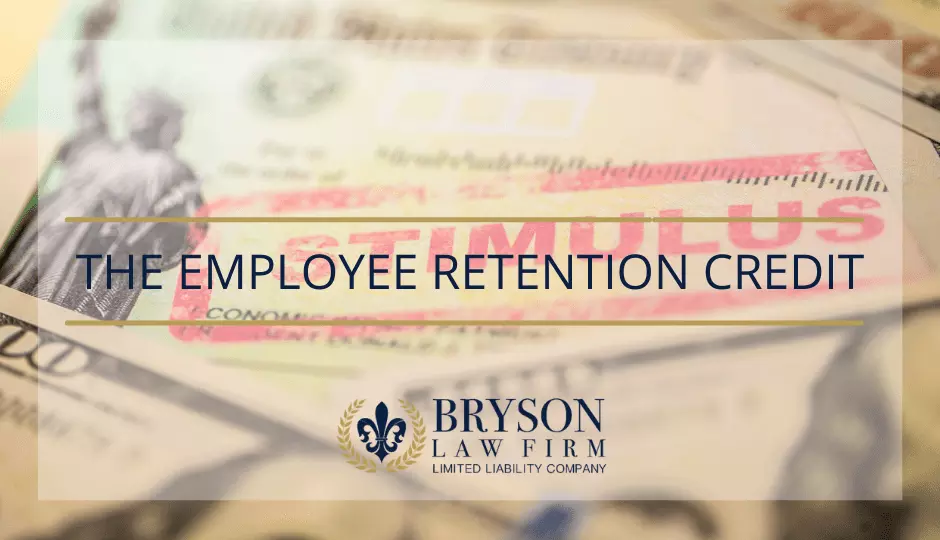The Employee Retention Credit (“ERC”) enables employers to claim a percentage of wages paid to an eligible employee after March 12, 2020, and before October 1, 2021, as a refundable tax credit. This credit was originally created under the Coronavirus Aid, Relief, and Economic Security Act (CARES) and has been extended over the last 2 years through various other pieces of legislation such as the Taxpayer Certainty and Disaster Relief Act of 2020, American Rescue Plan, and the Infrastructure and Jobs Act.
For each quarter of tax year 2020, wages of up to $10,000 paid to each employee can be counted to determine the amount of the 50% credit, making the maximum credit $5,000 per employee per year in 2020. For employers with full-time employees of more than 100 during 2019, the wages that qualify are those paid to employees who were unable to work and provide services due to the pandemic - up to the amount the employee would have been paid for working the same duration in the 30 days preceding the onset of the pandemic. For less than 100 full-time employees during 2019, the qualified wages are the total wages, including health care costs, up to $10,000/employee paid to any employee during the period business operations were suspended or the period of time the business had a decline in gross receipts, whether or not the employees provided any services. The offset is against the employer’s portion of Social Security tax.
In 2021, eligible employers can claim 70% of qualified wages paid to employees from Q1-Q3 of 2021, again limited to $10,000 per employee, this time per quarter, making the maximum amount available $7,000 per employee per quarter in 2021. The offset is against employer’s portion of Medicare tax. If the employer had more than 500 full time employees in 2019 (or 2020 for a Recovery Startup Business), the qualified wages are limited to those paid to employees that were not providing services because operations were suspended or due to the decline in gross receipts. For less than 500 employees in 2019 (or 2020 for a Recovery Startup Business), qualified wages are those paid to all employees regardless of whether they provided services. Recovery Startup Businesses are not limited to the first 3 quarters and can claim the credit for wages paid after September 30, 2021. A Recovery Startup Business is a business that began after February 15, 2020 and had annual gross receipts of under $1,000,000 for the 3-taxable-year period ending with the taxable year that precedes the calendar quarter for which the credit is determined. Recovery Startup Businesses also cannot be eligible under a full or partial suspension of operations or decline in gross receipts. Recovery Startup Businesses are limited to a $50,000 credit per calendar quarter.
To qualify, the employer must have operated a trade or business during the COVID-19 pandemic and experienced the full or partial suspension of the operation of their business due to government orders that limited commerce, travel, or group meetings due to the Coronavirus or a significant decline in receipts for the respective quarters.
Significant Decline in Gross Receipts
- For 2020 - on the first day of the first calendar quarter in 2020 for which the gross receipts were less than 50% of those for the same calendar quarter in 2019 to the first day of the first calendar quarter following the calendar quarter in which gross receipts are more than 80% the gross receipts for the same calendar quarter of 2019.
- For 2021 – the gross receipts in a calendar quarter in 2021 must be less than 80% of gross receipts in the same calendar quarter in 2019 OR less than 50% the gross receipts in 2020; an alternative quarter election rule allows employers to look at the prior calendar quarter and compare it to the same calendar quarter in 2019 to determine whether there was a decline in gross receipts. For Q3, “severely financially distressed” employers can treat all wages as qualified wages during the calendar quarter in which the employer is severely financially distressed, which is defined as gross receipts that are less than 10% the cross receipts in the same calendar quarter of 2019.
- For Recovery Startup Businesses, employers can use gross receipts in 2020 to be compared to with gross receipts in the same calendar quarter in 2021 to determine whether there was a decline in gross receipts.
Full or Partial Suspension of Business under Government Order
- This test is not as mathematical. Eligibility depends on the totality of the circumstances. To qualify under this provision, the employer must show that a significant portion of business was fully or partially suspended as a result of government orders during the COVID-19 pandemic.
- If a business was forced to close due to the government shutdown, it can easily be proven that this caused a significant portion of business to be suspended.
- If a business remained open, still able to operate during shutdowns, it depends on whether any suspended activities made up more than a nominal portion of the business. “Nominal” is less than 10% of gross receipts of business operations or total service hours performed by employees.
- Businesses may also qualify under this provision if they experienced Supply Chain Disruption – if suppliers could not deliver critical goods due to government shutdowns such as those that limited commerce, travel, or group meetings, the employer could not purchase the critical goods from an alternative supplier, and the consequence on the business due to the inability to purchase these critical goods was more than nominal.
Originally, the ERC was unavailable to businesses who received a PPP (Paycheck Protection Program) loan. However, later legislation also expanded this, now allowing employers who received a PPP loan to claim the ERC on wages not treated as payroll costs for forgiveness of the PPP loan.
The credit is claimed on the employer’s IRS Form 941 payroll tax returns for the relevant quarters. If the business already filed those returns without taking advantage of the credit, an adjusted Form 941-X can be filed.
Businesses that receive the credit through amended filings should explore whether their income tax return needs to be amended as well to reflect a reduced deduction for wages.
Have questions about your business’ eligibility for the ERC tax credit? Contact our offices today.
























